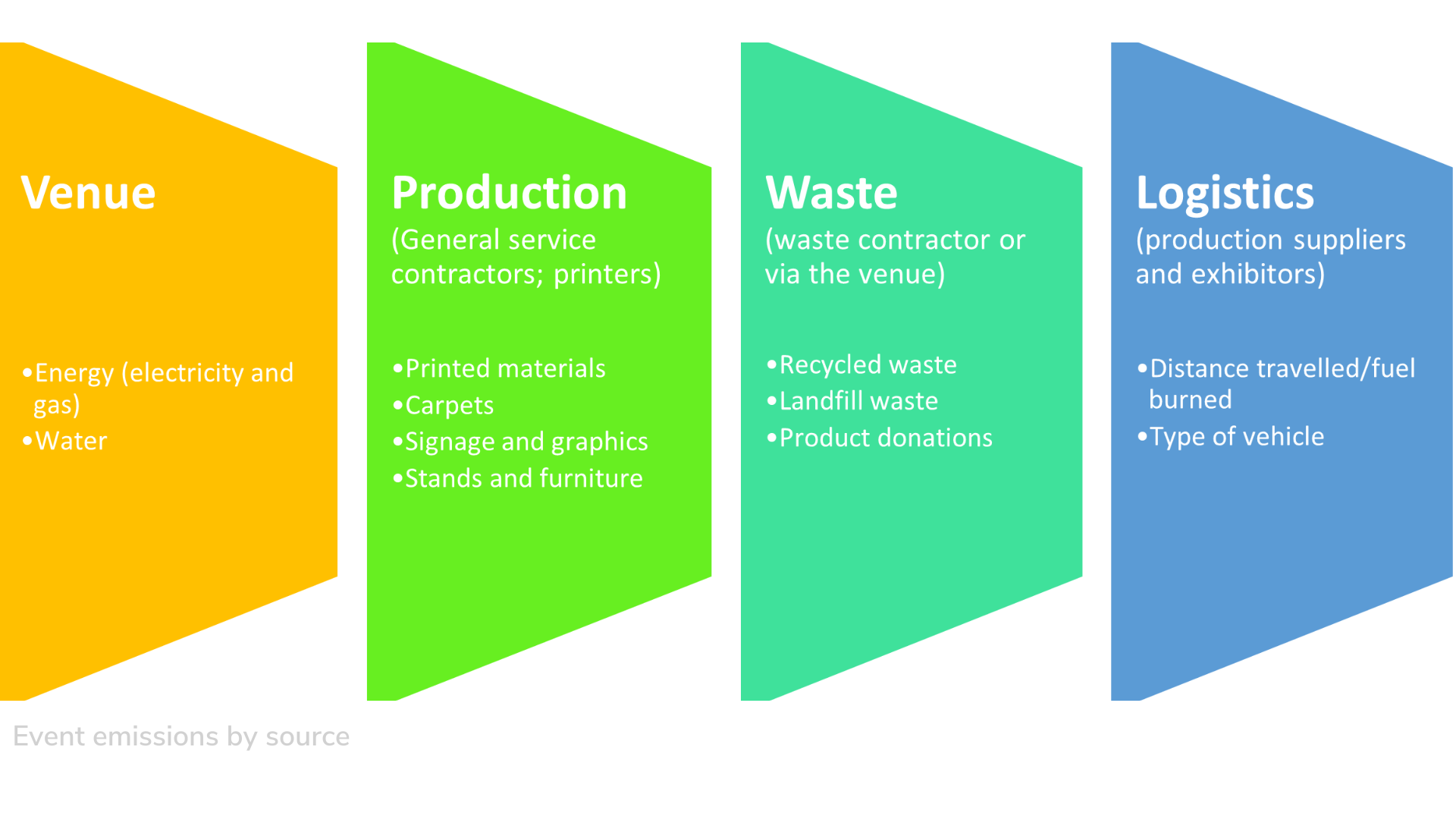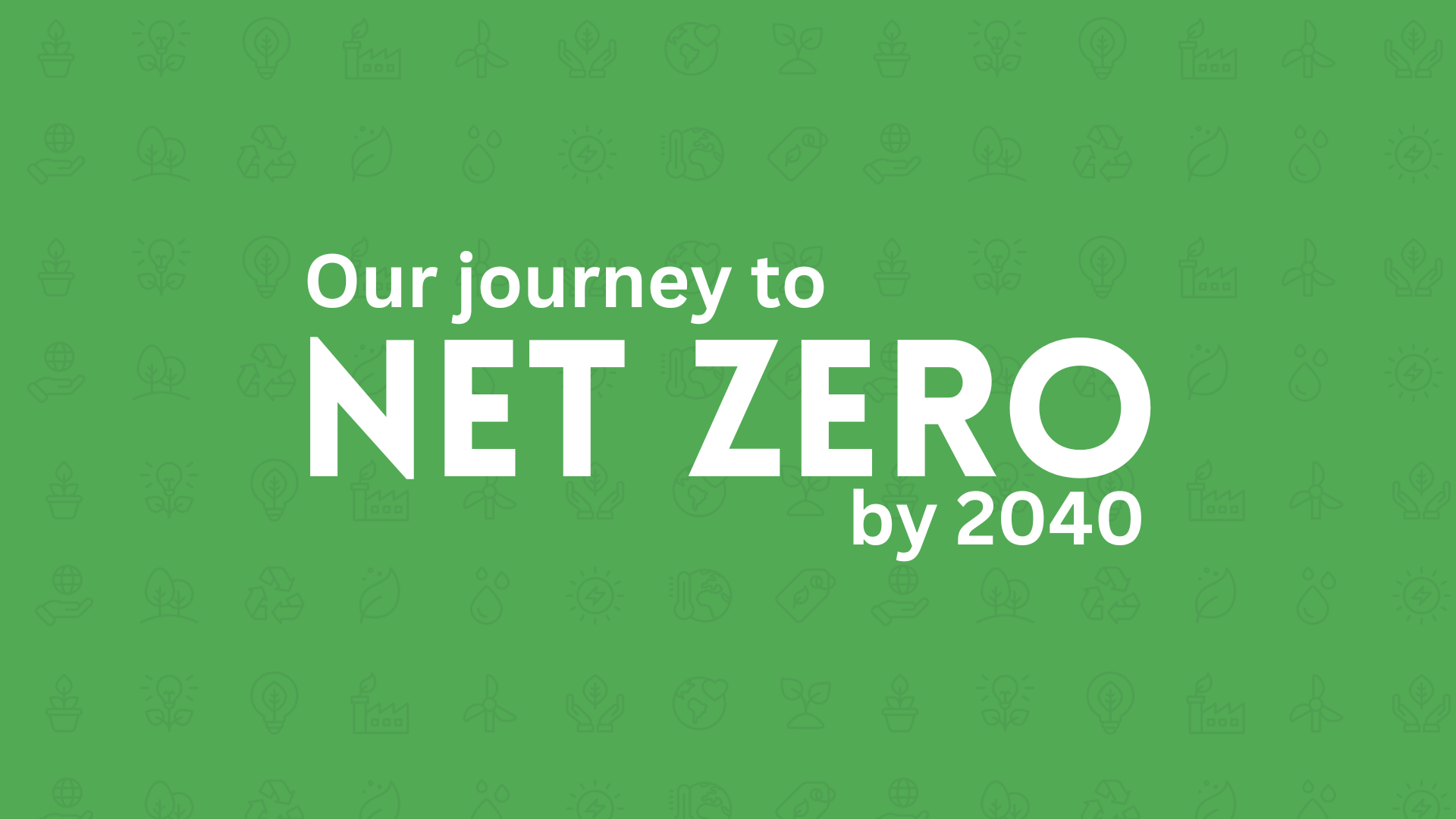The RX Sustainability Playbook
Guiding our journey to net zero events

The journey to net zero carbon events starts right now. Check out how RX’s new Sustainability Playbook is informing and supporting our event and operations teams to make more sustainable event choices.
Later this year, RX will publish our Pathway to Net Zero, setting out our carbon reduction strategy to achieve net zero by 2040, with key milestones for all our shows. As a first step, we have developed a new carbon reduction toolkit or ‘Playbook’ to support all of our event and operations teams in making more sustainable choices – be it through switching to digital catalogues, using sustainable badges and lanyards, recycling waste within the local community, or any number of other transformative opportunities.
Below, we highlight eight areas in which our event teams are already working to reduce carbon emissions, ranging from easy to complex, and covering the entire show lifecycle.
1. Measurement ‒ what gets measured gets managed
To meet our net zero pledge commitments, our first challenge is to measure our scope 3 emissions from venue energy, and production and waste from stands, signage and carpets. These emissions are not necessarily generated directly by us as the event organiser but by our suppliers, partners and customers.
Only be demonstrating our baseline carbon emissions across all our events can we identify the reductions needed to achieve our ambitious targets – hence, all our event teams are now required to collect data for waste, energy and water using an RX template provided, and all the venues we work with have been asked to provide this information.

2. Stakeholders ‒ take a partnership approach
RX events are produced with the support and engagement of a wide variety of stakeholders. Making our events more sustainable therefore relies on more than just the work we do ‒ we require our stakeholders to become more sustainable as well. They will have their own commitments to sustainability and achieving net zero, so it is in all our interests to align our actions and commitments to face the challenge together.
Our teams are provided with questions they should ask our stakeholders to support these important sustainability conversations, including whether or not they are a signatory to the Net Zero Events Pledge. This helps us to understand any limitations, and remove any potential roadblocks.
3. Venues – communicate expectations
With the exception of events organised at Messe Wien, all of our events take place at venues which are externally managed and owned. A number of factors influence our decision to use a particular venue including location and accessibility, availability and size. Currently it is a bonus if a venue has sustainability credentials, so it is important to engage with our venues to help them understand our expectations when it comes to sustainability and our requirement for them to measure their energy consumption.
RX event and operations teams are kick-starting the discussions with questions about current or planned use of renewable energy, LED lighting, power off strategies, provision of water stations for bottle refills, and more.
4.Production & Procurement – Refuse, Reduce, Reuse, Recycle
RX purchases products and services from a very large number of partners around the world. This gives us leverage to action change through our own behaviour to reduce the amount of carbon emissions generated. We give our event teams clear guidance on the procurement process from best to worst practice and highlight immediate actions that should be taken to reduce emissions.
We ask our event and operations teams to: eliminate plastic badge holders and use plant-silk lanyards; replace printed event guides with digital apps; remove carpeting where possible or reduce by 1/3 by partially carpeting aisles with recycled carpets; prioritise digital signage; rent modular and reusable stands and furniture from existing stock; use zero waste build materials which can be returned to stock; source locally produced, 50% plant-based foods and eliminate use of single plastics for catering.
5. Waste – separate, recycle, donate
By reusing items and reducing what is purchased for each show RX can have an immediate impact on the amount of waste our events produce. RX requires event and operations teams to work with our venue partners to understand their waste infrastructure and how recycled waste is separated from other waste streams; and, where possible, to take the following actions:
- Provide options for exhibitors to dispose of recycled waste
- Weigh the separated landfill and recycling waste streams and report this information to RX
- Develop links to donation programmes for waste products and especially for food waste.
6. Logistics – start transitioning to zero emissions
The transportation of equipment and goods to events is a significant generator of carbon emissions. Our vision is to significantly reduce the weight of materials that are required for our events over time, and to work with our logistics suppliers and customers to transition to low carbon transport options. We urge our event and operations teams to talk to their suppliers about how items are transported to our events, and to reduce journey emissions by consolidating as much as possible. ‘No idling’ policies are being introduced within loading bays and, where possible, event teams should give preference to logistics companies offering eco-friendly vehicle fleets, and use electric vehicles during set up and take down.
7.Travel & Transport – promote and incentivise sustainable travel
Visitor and exhibitor travel is by far the single biggest contributor of carbon emissions to an event footprint; however, it is also the hardest for us to control. We are working with the Net Zero Carbon Events initiative to better understand how we can manage these emissions. In the meantime, we want to find ways we can reduce these emissions, so we advise our event teams to:
- Only promote airlines and hotels which have credible Net Zero and sustainability strategies
- Incentivise the use of public transport
- Introduce the ability for visitors to offset their travel at the point of event registration
8. Communication on sustainability – share, inform and engage
RX is an active and committed driver of sustainability efforts. As a global leader in events, we are also in a unique position to be a sustainability influencer, helping to advance initiatives, innovation, products and services that drive sustainability within the industries we serve. At RX we urge our event teams to communicate our actions at our events and across our channels to help encourage wholesale event industry support for net zero carbon; and to use our event platforms to drive wider industry engagement in a net zero carbon future.

Discover our full journey (so far!) to net zero by 2040.



